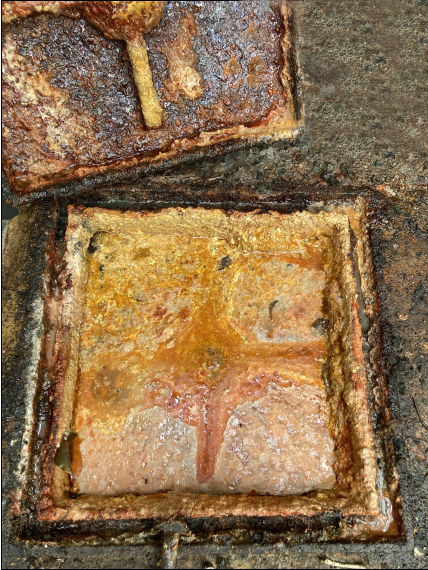Businesses in Durham are being urged to lead the way on protecting the city’s sewers from FOG. Fats, oils, and grease – known collectively as FOG – are a big problem. When rinsed down the sink, FOG can cause blockages that can force sewage back into homes or out into the environment.
Northumbrian Water’s FOG team is writing to businesses in Durham City that prepare or serve food, urging them to ensure they have the correct waste management equipment and procedures in place.
This will be followed up by visits to all such businesses in DH1, to look at what’s in place and help owners and managers to understand any further steps they need to take.
In the sewer, FOG congeals and hardens, often mixing with other things that shouldn’t be in the sewer, causing blockages in pipes.
When such blockages happen, the waste that should be in the sewer – toilet paper, pee and poo – are stopped from travelling to sewage treatment works.
Instead, they are forced back the way they came. This can cause them to go into people’s homes, rising up through toilets, shower trays, sinks and baths.
The waste can also be forced out into the environment through manholes and other outlets.
As well as writing to businesses, Northumbrian Water is embarking on a marketing campaign in the city, aimed at helping everyone – including residential customers – to understand the problem and how they can help.
Simon Cyhanko, Head of Wastewater Networks at Northumbrian Water, said:
“FOG is a big issue. Everyone’s heard of fatbergs, and that’s when FOG mixes with other unflushables – such as wipes and sanitary products – and creates a horrible mass that blocks sewers.
“This can happen anywhere, including from homes, with people pouring fat, oil or grease down the sink before washing up – and everyone can help by letting FOG cool, then scraping it into the bin, rather than rinsing it down the sink where it cools and hardens.
“However, in areas where there are large numbers of food service businesses, it can be a real problem. It only takes one business to not have a grease trap, or to not maintain it properly, for a significant build-up to happen.
“Nobody wants to be the person whose home gets flooded, and I’m sure nobody wants to be the cause, so we are going to work to help minimise the problem of FOG in Durham’s sewers.”




